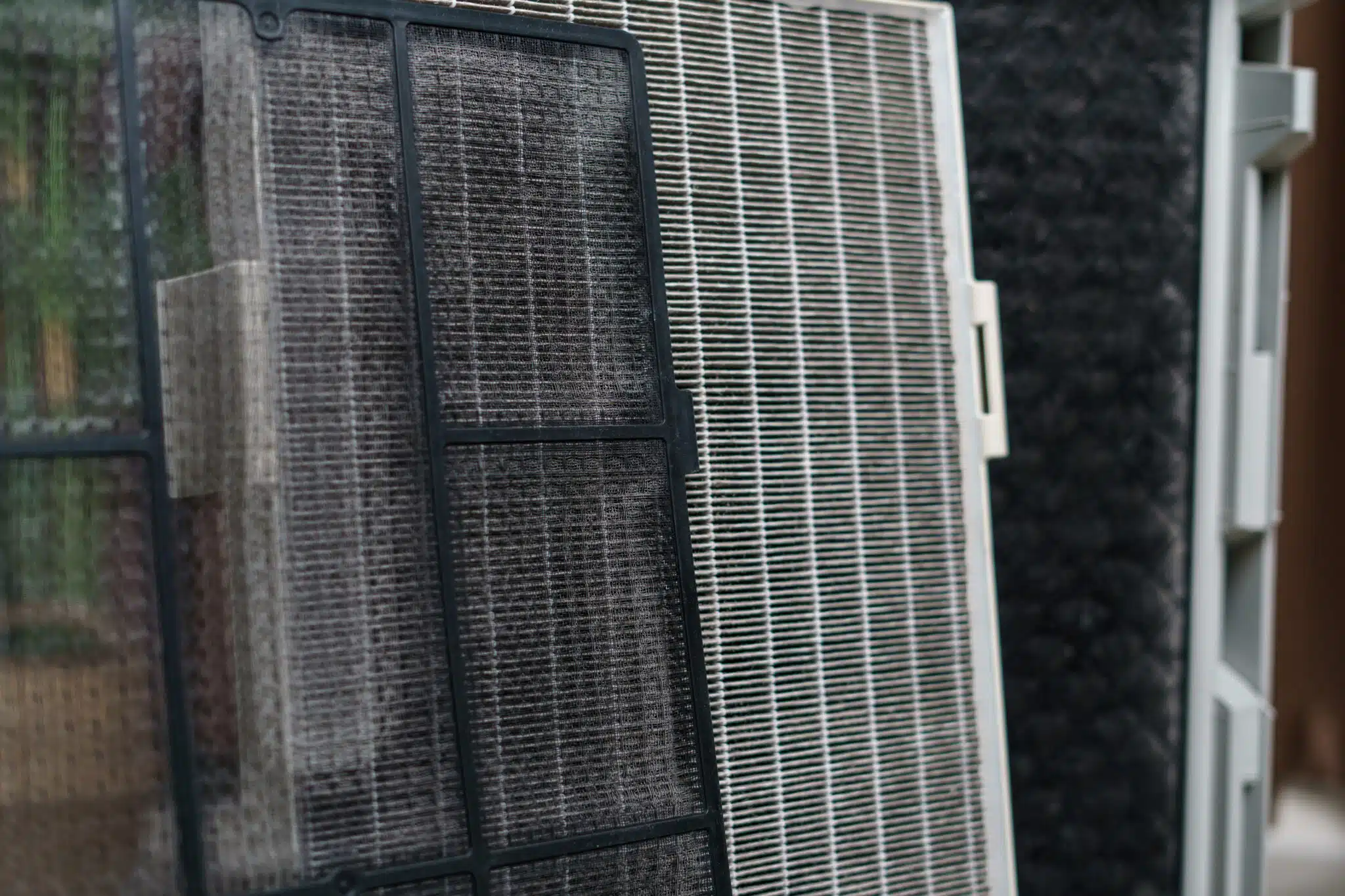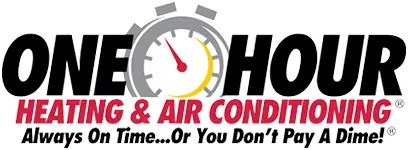How does air quality affect your allergies? Poor air quality introduces allergens like pollen, dust, and pet dander into our homes, worsening symptoms for many. High-efficiency air filters, especially HEPA filters, capture up to 99.97% of these irritants, helping reduce exposure. As more people prioritize clean air, filters have become essential for creating healthier indoor spaces.
How Air Filters Help Control Allergens
Air filters are essential in managing indoor allergens, especially for those sensitive to airborne irritants. When indoor air quality suffers, allergens like pollen, dust mites, and pet dander continuously circulate, often causing more severe allergic reactions. A high-quality air filter interrupts this cycle by capturing these particles, resulting in cleaner air that’s easier to breathe.
One of the most effective filters for allergy control is the HEPA filter, capable of capturing up to 99.97% of particles as small as 0.3 microns. This includes the finest allergy triggers, such as dust, mold spores, and even certain bacteria. HEPA filters don’t just improve air quality but help allergy sufferers manage symptoms by substantially reducing exposure to irritants. Many HVAC systems support HEPA or MERV-rated filters, with a MERV rating between 11 and 13 being ideal for filtering out allergens.
Activated carbon filters offer an additional benefit. While they primarily target chemical pollutants and odors, they also absorb volatile organic compounds (VOCs), which are common in households from products like cleaners and sprays. VOCs can exacerbate respiratory symptoms, so removing them creates a healthier indoor space. Combined with HEPA or MERV filters, these can significantly improve indoor air quality and relieve symptoms for those with respiratory sensitivities.
With the right filters in place, homes and workspaces can become safe havens for allergy sufferers, allowing for a noticeably cleaner and more breathable environment. Choosing the best air filter for specific allergens is key to achieving consistent, high-quality air indoors.

Types of Air Filters and Their Effectiveness in Managing Allergies
Air filters are vital in controlling indoor allergens, with each type offering specific benefits that improve air quality and help alleviate allergy symptoms. Choosing the best filter can transform indoor spaces into healthier, allergen-free environments.
HEPA Filters: Top Choice for Allergen Filtration
High-efficiency particulate Air (HEPA) filters stand out by trapping 99.97% of particles as small as 0.3 microns, making them ideal for filtering dust, pollen, and pet dander. These filters are highly effective for those with severe allergies or asthma. Although dense, they pair well with compatible HVAC systems designed to support high-efficiency air filters, delivering a cleaner, safer indoor environment for sensitive individuals.
MERV Filters: Balanced Filtration for Most Homes
MERV (Minimum Efficiency Reporting Value) filters are available in various ratings, with MERV 11 to 13 recommended for allergy sufferers. These filters effectively capture common allergens, including mold spores, pet dander, and dust particles, without compromising airflow, making them a practical choice for households that want improved air quality without overburdening HVAC systems.
Activated Carbon Filters: Removing Odors and Chemical Pollutants
Activated carbon filters excel at adsorbing odors and volatile organic compounds (VOCs) from cleaning products, paint fumes, and cooking odors. When combined with HEPA or MERV air filters, they help create a more comprehensive solution for those sensitive to both allergens and chemical irritants, providing a well-rounded approach to air purification.
Electrostatic Filters: Reusable and Eco-Friendly
Electrostatic filters use a static charge to attract particles, capturing larger pollutants like dust and pet hair. Though they aren’t as effective against fine allergens as HEPA filters, they’re washable and reusable, making them a budget-friendly, sustainable option for managing basic allergens with regular cleaning.
UV Light Filters: Tackling Biological Contaminants
UV light filters specialize in neutralizing biological contaminants like bacteria, viruses, and mold spores but don’t trap particles. Used in combination with other air filters, they help reduce microbial allergens, which benefits individuals with immune sensitivities. UV filters complement particulate filters for a thorough air-cleaning strategy that addresses both allergens and biological contaminants.
Selecting the right air filters based on individual needs and specific allergens allows households to create a safer, cleaner indoor space that supports respiratory health and comfort.
Choosing the Right Air Filter for Your Needs
Choosing the right air filters can dramatically improve indoor air quality and provide allergy relief by targeting specific allergens and pollutants. Here’s how to select the most effective filter based on your individual needs:
-
Identify Your Specific Allergens
Start by pinpointing the main allergens affecting your household. HEPA filters are excellent for capturing common irritants like pollen, dust, and pet dander. For those sensitive to odors and chemical vapors from household cleaners or cooking, an activated carbon filter can be added to address VOCs (volatile organic compounds), creating a cleaner, healthier indoor environment.
-
Understand MERV Ratings
MERV (Minimum Efficiency Reporting Value) ratings measure a filter’s effectiveness, with ratings from 1 to 20. For allergy sufferers, MERV 11 to 13 filters are recommended as they effectively trap allergens without overly restricting airflow. Higher ratings offer finer filtration but can reduce system efficiency if your HVAC system isn’t equipped to handle dense filters. Choosing the right MERV rating ensures an optimal balance between air filtration and HVAC performance.
-
Confirm HVAC Compatibility
HEPA filters provide robust filtration, but their density may require an HVAC system with sufficient airflow capacity. For systems unable to accommodate high-density filters, MERV-rated filters offer strong allergen control with less airflow restriction. Electrostatic filters are another option compatible with most HVAC systems, using static electricity to capture particles without straining airflow.
-
Assess Maintenance Requirements
Different filters require different levels of maintenance. HEPA and high-MERV filters typically need replacing every three months to maintain effectiveness, while electrostatic filters are washable and reusable, making them a budget-friendly choice. Regular maintenance keeps air filters performing optimally and extends HVAC life by reducing strain.
-
Consider Budget and Environmental Impact
While high-quality filters may cost more upfront, the long-term benefits of improved air quality and allergy relief are often worth the investment. Eco-conscious households might prefer washable options like electrostatic filters or sustainably manufactured filters, reducing waste and cost over time.
Selecting the right air filters based on allergens, system compatibility, and maintenance needs can create a cleaner indoor environment, promoting better health and comfort for allergy sufferers.
HEPA Filters: The Gold Standard for Allergy Management
HEPA filters are widely regarded as the top choice for allergy management, thanks to their ability to capture 99.97% of particles down to 0.3 microns. This high efficiency allows HEPA filters to trap a range of common allergens, such as pollen, dust mites, and pet dander, significantly improving indoor air quality. For individuals with severe allergies or asthma, HEPA filters are invaluable in creating a cleaner, safer breathing environment.
The dense mesh structure in HEPA filters operates through multiple layers that use interception, diffusion, and impaction to capture microscopic particles, blocking pollutants from recirculating in the air. While highly effective, these filters are dense and may require HVAC systems capable of handling restricted airflow. In cases where central systems aren’t compatible, portable HEPA air purifiers offer an efficient alternative, delivering effective allergen control for improved respiratory health.
Maintenance of Air Filters and Their Role in Allergy Management
Regular maintenance of air filters is crucial to ensure optimal performance in managing allergens and improving indoor air quality. Properly maintained air filters not only capture allergens effectively but also support the efficiency and longevity of HVAC systems.
Scheduled Replacement for Efficiency
High-efficiency filters, such as HEPA and MERV-rated filters, trap fine particles but can become clogged with allergens like pollen, dust, and pet dander. For maximum performance, replace these filters every three months, especially in households with pets or in high-allergen areas. Clogged filters reduce airflow and can quickly lose their allergen-trapping capacity.
Washable Filters Require Regular Cleaning
Electrostatic and washable filters capture larger particles and are environmentally friendly due to their reusable design. To maintain their effectiveness, they need thorough monthly cleaning to remove accumulated allergens. Consistent cleaning also supports sustainable filtration without compromising indoor air quality.
Protecting HVAC System Health
Unmaintained filters strain HVAC systems by obstructing airflow, causing increased energy usage and potentially shortening system lifespan. Regular filter maintenance reduces strain, helping systems run smoothly and minimizing potential repair costs.
Monitoring Filter Condition
Regularly check for reduced airflow or increased allergy symptoms, as these can indicate a clogged filter. Proactive maintenance ensures continued allergen control and consistent indoor air quality.
With routine care, air filters enhance allergy management, improve system efficiency, and promote a healthier living environment, making them an essential component of indoor air quality management.
The Role of HVAC Systems in Allergy Control
In King of Prussia, PA, HVAC systems are vital for maintaining a comfortable, allergen-controlled environment, especially during high-pollen seasons and humid summers. By circulating air and incorporating high-quality air filters, HVAC systems in this area help reduce common allergens, benefiting local residents with respiratory sensitivities.
Effective Allergen Filtration
HVAC systems equipped with HEPA or MERV-rated air filters trap up to 99.97% of airborne allergens, such as pollen, dust, and pet dander, which are common in King of Prussia. Regular filter replacements are crucial to maintaining this filtration, capturing new allergens as they enter from outdoor sources.
Humidity Control to Prevent Mold Growth
The humid climate in King of Prussia, particularly during the summer, can lead to mold growth, a significant allergen. By keeping humidity levels below 50%, HVAC systems help prevent mold spores from spreading indoors. Areas prone to higher moisture levels, like basements, benefit significantly from this regulation, as it inhibits both mold and mildew growth.
Consistent Air Circulation for Allergen Reduction
Beyond filtration, continuous air circulation within HVAC systems prevents allergens from settling and accumulating in stagnant indoor air. This feature is especially beneficial in King of Prussia, where local allergens, pollutants, and pollen can infiltrate homes. Proper ventilation and air exchange keep indoor air fresher and healthier.
Ventilation for Cleaner Indoor Air
Some HVAC systems incorporate outdoor air exchange, which brings in fresh air to dilute indoor pollutants. This ventilation is essential in areas with seasonal allergens, like King of Prussia, as it reduces allergen concentrations and improves overall air quality.
Regular maintenance of HVAC systems, including timely filter replacements and inspections, ensures continuous allergen management. For residents of King of Prussia, a well-maintained HVAC system offers year-round allergy relief and a healthier living environment.
Indoor Air Quality Tips for Allergy Sufferers
Improving indoor air quality is a top priority for allergy sufferers, as it reduces exposure to irritants and enhances overall comfort. Here are practical, high-impact tips to maintain cleaner air at home:
Invest in High-Efficiency Air Filters
Installing HEPA or MERV-rated air filters in your HVAC system can capture up to 99.97% of airborne allergens, including pollen, pet dander, and dust. Change filters every three months, or more often in high-allergen areas, to ensure continuous allergen control.
Control Indoor Humidity
Keep humidity between 30% and 50% to limit mold growth and reduce dust mites, both of which thrive in damp environments. Consider using a dehumidifier in basements or bathrooms to maintain these levels and prevent the buildup of moisture-related allergens.
Prioritize Allergen-Safe Cleaning
Use a vacuum with a HEPA filter to trap dust particles rather than redistribute them. For cleaning, choose fragrance-free, hypoallergenic products that minimize exposure to volatile organic compounds (VOCs) and other irritants, ensuring a safer environment for those with sensitivities.
Ventilate Strategically
Fresh air is essential, but timing is key. Open windows when pollen counts are low or use an HVAC system with fresh air intake to circulate clean air without increasing allergens indoors.
Minimize Allergen Traps
Carpeting, curtains, and upholstery often harbor allergens. Opt for easy-to-clean materials, and wash fabrics like bedding and curtains in hot water regularly to eliminate dust mites and other allergens. Hardwood floors and washable blinds are great alternatives for reducing allergen buildup.
Supplement with Air Purifiers
Portable air purifiers equipped with HEPA filters add an extra layer of filtration, especially in frequently used rooms like bedrooms and living spaces. This extra filtration boosts indoor air quality by capturing lingering allergens and pollutants not trapped by HVAC systems.

Benefits of High-Quality Air Filtration Beyond Allergy Relief
High-quality air filters provide more than just allergy relief—they enhance overall well-being, health, and comfort, making them an essential addition to any home. Here’s why investing in high-quality air filtration can make a real difference:
-
Promotes Respiratory Wellness
Air filters like HEPA and MERV-rated options remove dust, pollen, mold spores, and even bacteria from the air, helping protect everyone in the home, not just allergy sufferers. Cleaner air can reduce respiratory irritation and asthma symptoms and is beneficial for young children, seniors, and anyone with respiratory sensitivities.
-
Enhances Sleep Quality
By filtering out irritants that can trigger nighttime allergies, air filters create a cleaner environment that supports uninterrupted sleep. For those with sensitivities, sleeping in a space with reduced allergens can alleviate congestion, coughing, and other disturbances, leading to better sleep quality and a stronger immune system.
-
Neutralizes Odors and Reduces VOCs
Activated carbon filters go beyond particle capture by adsorbing household odors from cooking, pets, and cleaning chemicals. By reducing VOCs (volatile organic compounds) commonly found in household products, these filters improve indoor air quality and make the home smell fresher without relying on artificial fragrances.
-
Guards Against Harmful Pollutants
High-quality air filters can capture fine particles from outdoor pollution, traffic emissions, and smoke, all of which can impact cardiovascular health. HEPA and carbon filters protect against these harmful pollutants, creating a safer indoor environment—especially valuable for homes in high-traffic or urban areas where pollution levels are higher.
-
Improves Mental Clarity and Productivity
Clean air has been shown to enhance mental focus and cognitive performance. By minimizing exposure to indoor pollutants, high-quality filtration systems can support productivity and clarity, making a noticeable difference in work-from-home settings, study spaces, and any environment where focus is key.
Investing in high-quality air filters delivers layered benefits for health, energy, and overall home comfort, making it a worthwhile commitment to long-term wellness for every household member.
FAQs
-
What type of air filter is best for managing allergies?
HEPA filters are highly recommended, as they trap 99.97% of airborne particles, including pollen, dust, and pet dander. MERV-rated filters between 11 and 13 are also effective, capturing many allergens while maintaining airflow compatibility with most HVAC systems.
-
How often should air filters be replaced or cleaned to control allergens effectively?
For optimal allergy relief, disposable filters should be replaced every three months. If you have pets or live in high-pollen areas, consider replacing them monthly. Washable filters, such as electrostatic ones, should be cleaned every month to maintain their effectiveness.
-
Can portable air purifiers help alongside HVAC air filters?
Yes, portable air purifiers with HEPA filters provide targeted filtration for high-use areas, like bedrooms and living rooms. They work well as an additional measure to reduce allergens in specific rooms.
-
Do air filters help with odors and chemical sensitivities?
Activated carbon filters are designed to capture odors and VOCs from household products, providing relief for those sensitive to chemicals when combined with HEPA or MERV filters.
-
What should I consider when selecting an air filter for allergies?
Key factors include the type of allergen, the filter’s MERV rating, your HVAC compatibility, and maintenance needs. Choosing based on these criteria helps maximize allergy relief and indoor air quality.
For effective allergy relief and cleaner indoor air, choosing the right air filters and regular HVAC maintenance is essential. One Hour Heating & Air Conditioning of Lancaster in King of Prussia, PA, provides expert services, ensuring top air quality and comfort for your home.





